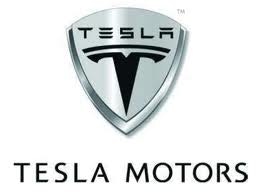A market capitalization of around $20 billion, and a share price that has more than quadrupled, has led many analysts to pin the “overvalued” label on Tesla Motors Inc (NASDAQ:TSLA). They criticize its lack of significant earnings, atop a valuation far richer than that of other automakers. But is Tesla Motors Inc (NASDAQ:TSLA) really overvalued when compared with the other high-growth companies Wall Street likes?
What Wall Street likes
Wall Street sees — and adores — growth in businesses that shake up an industry and challenge existing paradigms, and in new technologies that could make existing ones obsolete, or at least steal much of their market share.

The technology side is pretty clear as well. We won’t spend the entire article on the features of the Model S, but its top features include the longest range of any all-electric production car, among the best-ever crash-test ratings, SUV-sized cargo space, an ultra-low operating cost, and, of course, top-notch performance.
So Tesla Motors Inc (NASDAQ:TSLA) has the technology and industry-changing business model that Wall Street loves, and commands a high valuation because of it. Another company with both of these characteristics is Amazon.com, Inc. (NASDAQ:AMZN), with an online sales model that has won Wall Street’s approval.
Investors show that approval in the form of dollars, and Amazon.com, Inc. (NASDAQ:AMZN) shares have surged, even though the company isn’t posting significant earnings. Not only does Wall Street give Amazon.com, Inc. (NASDAQ:AMZN) a high valuation, but that valuation (based on fiscal 2013 and 2014 P/E ratios) is even higher than that of Tesla Motors Inc (NASDAQ:TSLA).
Just as Wall Street expects Tesla Motors Inc (NASDAQ:TSLA) to ramp up Model S and Model X production and proceed into the mass market, the Street predicts that Amazon.com, Inc. (NASDAQ:AMZN) will move into other areas of online commerce. Lately, Amazon.com’s Prime offering has been getting a lot of attention, growing beyond free two-day shipping and occasional product offers into things like online video streaming.
AmazonFresh, the online retailer’s grocery business, has also been in the news. It’s busy building refrigerated warehouses to compete with grocery chains.
There are many other examples out there. Netflix, Inc. (NASDAQ:NFLX) commands a triple-digit P/E ratio based on fiscal 2013 earnings, and a forward P/E ratio of 90 for 2014. Netflix, Inc. (NASDAQ:NFLX) and Amazon.com, Inc. (NASDAQ:AMZN) are both using the technology of the Internet to disrupt traditional business models. In Amazon.com’s case, the victims are big-box retail stores, and in Netflix, Inc. (NASDAQ:NFLX)’s case, the losers are video rental companies.





